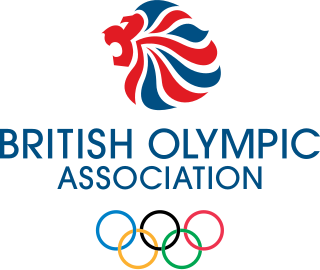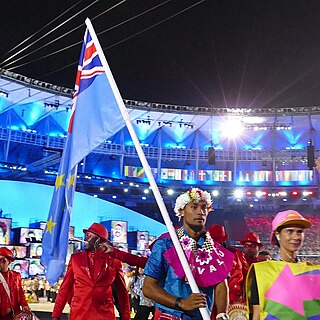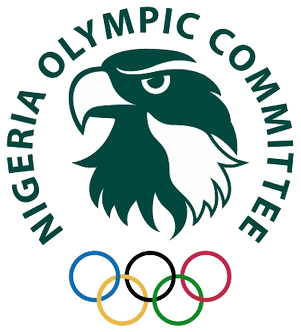
A National Olympic Committee (NOC) is a national constituent of the worldwide Olympic movement. Subject to the controls of the International Olympic Committee, NOCs are responsible for organizing their people's participation in the Olympic Games. They may nominate cities within their respective areas as candidates for future Olympic Games. NOCs also promote the development of athletes and the training of coaches and officials at a national level within their geographies.

The British Olympic Association (BOA) is the National Olympic Committee for the United Kingdom. However it is almost unique in that its teams also incorporate representatives from other British dependent territories, who do not have their own separate Olympics teams, but which also excludes some UK citizens from Northern Ireland due to internal governing body territories in sports such as rugby, tennis and field hockey. Founded in 1905, it is responsible for organising and overseeing the participation of athletes from the Great Britain and Northern Ireland Olympic Team, at both the summer and winter Olympic Games, the Youth Olympic Games, the European Youth Olympic Festivals, and at the European Games.

The Pacific Games, is a continental multi-sport event held every four years among athletes from Oceania. The inaugural Games took place in 1963 in Suva, Fiji, and most recently in 2023 in Honiara, Solomon Islands. The Games were called the South Pacific Games from 1963 to 2007. The Pacific Games Council (PGC) organises the Games and oversees the host city's preparations. Athletes with a disability are included as full members of their national teams. In each sporting event, gold medals are awarded for first place, silver medals are awarded for second place, and bronze medals are awarded for third place.

Tuvalu competed at the 2008 Summer Olympics in Beijing, China, from 8 to 24 August 2008. This was the nation's first ever appearance in an Olympic Game. The delegation included two track and field athletes and one weightlifter. Okilani Tinilau and Asenate Manoa participated in athletics while Logona Esau participated in the weightlifting sport. Both track and field athletes achieved national records. Logona Esau led the Tuvaluan squad as the nation's flag bearer in the parade of nations.
Saimoni Tamani is a Fijian former athlete who specialized in running the 400 metres.
Paralympics Australia (PA) previously called the Australian Paralympic Committee (APC) (1998–2019) is the National Paralympic Committee in Australia for the Paralympic Games movement. It oversees the preparation and management of Australian teams that participate at the Summer Paralympics and the Winter Paralympics.
Sports in Vanuatu are played throughout the country.

Sport is an important part of Tuvaluan culture, which sporting culture is based on traditional games and athletic activities and the adoption of some of the major international sports of the modern era.

The Cook Islands compete as a part of netball's Oceania region. More than 1,000 players have registered to play the sport. Participation in the game grew during the 1970s. Much of this is possible because of the national governing organisation, the Cook Islands Netball Association which is a member of Oceania Netball Federation. Because of the level of organisation and the game's development, the country has participated at several international events including the Pacific Games, the Commonwealth Games, the World Games, the Oceania Netball Tournament, the World Youth Netball Championship, and the International Challenge Men's and Mixed Netball Tournament. A demonstration of the Cook Islands success can be found by looking at the national team: It is one of the top ranked in the world.
Netball has never been played at the Summer Olympics, but its federation has been recognized by the International Olympic Committee (IOC), since 1995 after a twenty-year period of lobbying. The netball community sees netball's absence at the Olympic Games as a hindrance to the global growth of the game, depriving it of media attention and funding. The IOC requires a high geographical scope for inclusion in the Olympics, but netball is mostly played in Commonwealth countries. When the IOC recognized netball's federation, it opened up sources of funds that the global netball community had not been able to access before, including the (IOC), national Olympic committees and sports organisations, and state and federal governments.

The Nigeria Olympic Committee (NOC) is the National Olympic Committee for Nigeria, responsible for co-ordinating and supporting Nigerian competitors in the Olympic Games. It is also the body responsible for Nigeria's representation at the Commonwealth Games.
The Fiji women's national rugby sevens team represents Fiji at regional and international sevens tournaments.
The organisation of sport in Australia has been largely determined by its Federal system of government – Australian Government and six states and two territories governments and local governments. All three levels play an important role in terms of funding, policies and facilities. Each major sport is managed by a national sports organisation, with state counterparts that manage community sporting clubs. Umbrella or peak organisations represent the interests of sports organisations or particular sport issues. Education sector plays a small role through universities and schools. Private sector's involvement is extensive in professional sport through facilities, club ownership and finance/sponsorship.
South Africa did not compete at Olympic Games from 1964 to 1988, as a part of the sporting boycott of South Africa during the apartheid era. The South African National Olympic Committee (NOC) was expelled from the International Olympic Committee (IOC) in 1970. In 1991, as part of the transition to multiracial equality, a new NOC was formed and admitted to the IOC, and the country competed at the 1992 Summer Olympics held in Barcelona.

The Tuvalu Athletics Association (TAA) is the governing body for the sport of athletics in the Tuvalu.

The Tuvalu Association of Sports and National Olympic Committee (TASNOC) is the Tuvaluan organization recognized as a National Olympic Committee (NOC) by the International Olympic Committee (IOC). In 2006, Tuvalu satisfied the IOC's criterion of a minimum five national sports federations recognized by their international sports federations, which included basketball, volleyball, weightlifting, boxing and table tennis.

South Sudan competed in the Olympic Games for the first time at the 2016 Summer Olympics in Rio de Janeiro. The South Sudan National Olympic Committee (NOC) was admitted by the International Olympic Committee (IOC) at the 128th IOC Session on 2 August 2015.
Andra Whiteside is a Fijian squash and badminton player. She has represented Fiji in badminton at the 2006, 2018 Commonwealth Games and at the 2007, 2011, and 2019 Pacific Games. She also represented Fiji in squash at the 2015 Pacific Games. She plays as the third singles against Tahiti, helps the team to clinched the bronze medal.
Hilda Vukikomoala is a Fijian chess player, who holds the International Chess Federation title of Woman FIDE Master (WFM). She is also President of the Fiji Chess Federation.

Fiji competed at the 2022 Commonwealth Games in Birmingham, England between 28 July and 8 August 2022. It was Fiji's seventeenth appearance at the Games.












